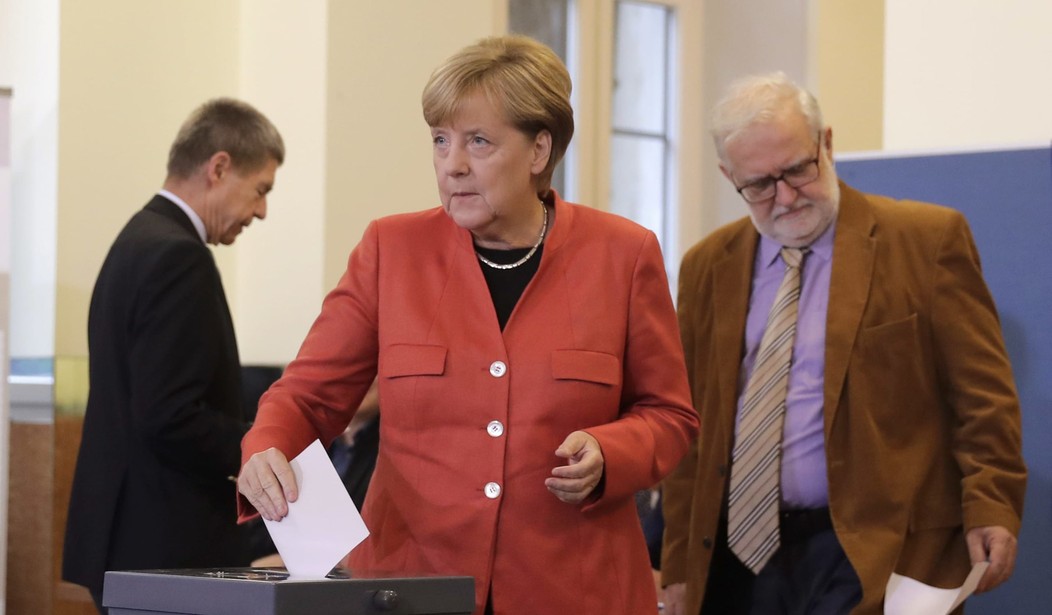Although Angela Merkel’s Christian Democratic Union lost 9 percent compared to the last elections, her party has yet again become the largest party in Germany’s parliament today. Merkel’s CDU won 32.5 percent of the vote. That’s significantly less than four years ago, but because Germany’s electorate is more divided than ever before, it’s enough to make her chancellor once more.
However, that’s only if she’s able to form a coalition with the liberal Free Democrats and the Greens, who finished the day with 10.5 and 9.4 percent of the vote, respectively.
For Merkel, the results will leave a bitter taste in her mouth — not only because she has lost support and now needs other parties to form a coalition government, but also because she now has a competitor to her right. For the first time in decades, a right-wing populist party has won enough votes to get into the Bundestag. Alternative für Deutschland, which is routinely depicted as “racist” in the American media, won 13.5 percent of the vote, making AfD Germany’s third largest party.
The second-largest party is the SPD. However, if Merkel is somewhat disappointed, today truly was a day from hell for the SPD and its leader Martin Schulz. The SPD ended the day with a mere 20.2 percent of the vote. That’s the worst result for the social democrats since the end of the Second World War. As a result, Schulz has already announced that he is not willing to form a coalition with Merkel.
Today’s results are a clear sign that German voters are just about fed up with Merkel’s (and Schulz’s) immigration policy. It’s because of Merkel that millions of Syrians, North Africans, Middle Easterners — and on and on — have flooded into Europe in the last few years. She encouraged that wave of mass migration by telling everybody that “we can deal with it” (“Wir Schaffen das“). Well, perhaps she can schaff it, but German voters beg to differ. They see what has happened to their country, to their cities, and to their neighborhoods, and want no more of it. That’s why the CDU and the SPD have lost, while the AfD has not only passed the voting threshold of 5 percent but has done so with great ease.
This despite the fact that AfD has routinely been portrayed as neo-Nazi racist scum, not only in the media but also by Germany’s other parties. To break through regardless shows just how much potential this party — or any other right-wing populist party — has.









Join the conversation as a VIP Member